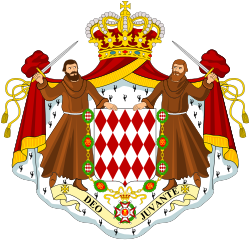| | |||||||||||||||||
19 January 1958 | |||||||||||||||||
All 18 seats in the National Council 10 seats needed for a majority | |||||||||||||||||
This lists parties that won seats. See the complete results below.
| |||||||||||||||||
 |
|---|
General elections were held in Monaco on 19 January 1958. The result was a victory for the National Union of Independents, which won 11 of the 18 seats in the National Council. [1]